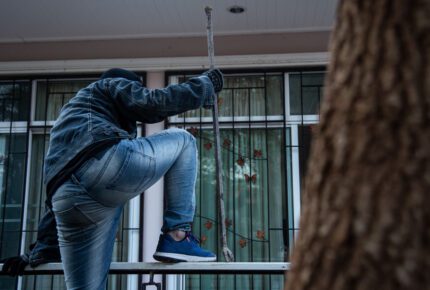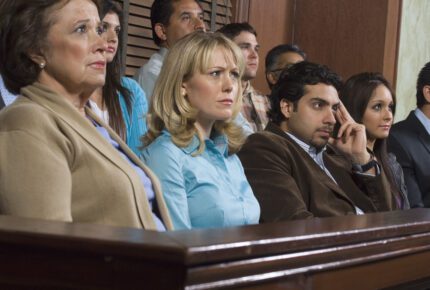

Downloading indecent images is a grave crime that is treated very seriously by the English courts. If you are arrested or charged with downloading indecent images, you should seek legal advice from a solicitor as soon as possible to ensure the best possible outcome in your case. This article will address common concerns, such as whether you need a solicitor, potential defences, and the likelihood of being granted bail. By understanding these aspects, you can better navigate the legal process and protect your rights.
Do I need a solicitor for downloading indecent images?
The simple answer is: yes, having a qualified criminal defence solicitor is essential when dealing with allegations of downloading indecent images. There are several reasons why.
Firstly, the law surrounding indecent images is strict and complex. Offences range from possessing indecent material to downloading or distributing it. The penalties for these offences can include lengthy prison sentences and being placed on the sex offenders register. A solicitor will help you understand the charges against you, the potential consequences, and any legal defences that may apply.
When accused of downloading indecent images, a solicitor’s expertise is vital in reviewing the evidence. They can identify weaknesses or inconsistencies in the prosecution’s case and use these to your advantage. Solicitors are also skilled in negotiating with prosecutors, which could lead to reduced charges or even the dismissal of your case in certain circumstances.
Additionally, solicitors are experienced in court procedures and can represent you effectively if your case goes to trial. They understand how to present evidence, cross-examine witnesses, and argue your defence persuasively. Having a solicitor ensures your rights are protected throughout the legal process.
What are possible defences for downloading indecent images?
One possible defence is the lack of knowledge. To secure a conviction, the prosecution must prove beyond reasonable doubt that you knowingly downloaded the images. If you can demonstrate that the material was downloaded without your knowledge, this could serve as a strong defence.
Another potential defence is unintentional download. Sometimes, indecent images may be downloaded automatically through malware, pop-ups, or other malicious software. A forensic examination of your devices can help establish this.
In some cases, mistaken identity may be a defence. If there is doubt about whether you were the person who accessed or downloaded the material, this could weaken the prosecution’s case.
Procedural errors or issues with evidence collection can also provide a defence. For example, if your rights were violated during the investigation or if evidence was mishandled, this could result in evidence being deemed inadmissible, significantly weakening the case against you.
Finally, a defence of duress may apply in rare cases, such as if you were coerced into downloading the material under threat. However, this defence is complex and requires strong evidence to support it.
Will I get bail for downloading indecent images?
Several factors are considered by the court when deciding whether to grant bail:
- Nature and seriousness of the offence: Downloading indecent images is treated seriously, particularly if the material involves children or extreme content. The severity of the offence will heavily influence the court’s decision.
- Previous criminal record: If you have prior convictions, especially for similar offences, the court may be less inclined to grant bail due to concerns about reoffending.
- Ties to the community: Strong ties, such as family connections, employment, or long-term residence, may work in your favour, suggesting you are less likely to abscond.
- Risk of failing to attend court: The court will assess whether there is a significant risk that you might not attend future hearings. Previous instances of failing to appear can negatively impact your chances of being granted bail.
- Risk to public safety: If there is any indication that releasing you on bail might pose a danger to others, the court is likely to deny bail.
- Interference with witnesses or investigation: Concerns that you might interfere with witnesses or the ongoing investigation can result in a denial of bail.
Will I have to go to court if I’m arrested or charged for downloading indecent images?
Offences involving downloading indecent images can range from relatively minor cases, such as possessing a small number of low-category images, to more serious charges involving large volumes of high-category material. The seriousness of the charge often dictates the legal process, including court proceedings. Typically, these offences can be classified into summary offences and indictable offences:
- Summary offences are less severe and are usually handled in a Magistrates’ Court. These may not always require a court appearance, especially if the case can be resolved through other means, such as a caution or a plea deal.
- Indictable offences are more serious and are typically heard in the Crown Court. This will almost always involve court appearances, where the accused must be present to address the charges and any potential trial.
In some cases, there may be an initial appearance in a Magistrates’ Court even if the offence will eventually be tried in the Crown Court. During these hearings, the magistrates may decide issues such as bail and legal representation while the case is prepared for trial.
Will I go to jail if found guilty of downloading indecent images?
Offences involving indecent images are governed by strict laws in the UK, which outline various offences and their corresponding penalties (backed by sentencing guidelines). The range of offences is broad, from possession of a small number of low-category images to more serious charges involving distribution or production of indecent material. Sentencing reflects the gravity of the offence and the court’s view of the harm caused.
For possession of indecent images, the court considers factors such as the category of the images (A, B, or C) and the volume of material. Category A images, which depict the most serious abuse, carry the harshest penalties. Sentences can range from community orders to significant custodial sentences.
For more serious offences, such as distributing or producing indecent images, sentences are typically much more severe, reflecting the greater harm caused by these actions.
Will I go to jail if it’s my first offence of downloading indecent images?
The likelihood of a first-time offender going to jail depends on the specific circumstances of the case, the type of offence, and the nature of the material involved. Many offences, such as possession of high-category images or distribution, carry significant penalties, including custodial sentences, even for first-time offenders. For example, possession of a large number of Category A images is likely to result in a prison sentence.
That said, the court may impose a lesser sentence if there are strong mitigating factors, such as evidence of rehabilitation, cooperation with the investigation, or exceptional personal circumstances. In some cases, first-time offenders may receive a community order or a suspended sentence instead of immediate custody.
Can I get Legal Aid for downloading indecent images?
In England and Wales, Legal Aid is available to ensure fair access to justice and can potentially cover the costs of your defence. Whether you can receive Legal Aid largely depends on two main factors: the ‘interest of justice’ test and a financial means assessment.
The ‘interest of justice’ test considers the seriousness of the charge and whether a conviction could lead to imprisonment. Given the severe penalties associated with downloading indecent images, you are likely to meet this criterion. The complexity of your case can also influence this aspect. If dealing with unfamiliar legal procedures, having legal representation enhances your chances of a fair trial, which can qualify you for Legal Aid.
The financial means assessment evaluates your ability to pay for legal services. This means test examines your income, family circumstances, and assets. If you receive certain benefits, you may automatically qualify. The threshold for eligibility varies, but generally speaking the less you have available to you the more likely you are to qualify for Legal Aid.
Where to get more help
Obtaining the advice of a skilled criminal defence solicitor with proven experience in cases involving indecent images will make a significant difference in the outcome of your case. Not only is it reassuring to have someone experienced guide you through the process, but you also have someone fighting for your rights at every stage. If you or someone you care about is facing criminal charges and you need the assistance of such a solicitor, get in touch with the team at Stuart Miller Solicitors today.
OUR COMMITMENTS TO YOU:
-
Responsive
A legal expert will consult you within 24 hours of making an enquiry.
-
Empathetic
We will always treat you with trust, understanding and respect.
-
Specialised
Your case will be handled by an expert who specialises in your type of offence.
-
Proactive
We will take early action to end proceedings as soon as it is practically and legally possible to do so.
-
Engaged
You will be kept updated on your case at all times. We will provide a named contact available to answer your questions.
-
Caring
We understand this is a difficult and stressful time for you and your family. Our team will support you every step of the way.
-
Tenacious
We will never give up on your case. We fight tirelessly to get you the best possible outcome.

